An appeal letter is a written action taken when you feel a situation involving you should be reconsidered.
In a formal setting, decisions are liable to change until they are finalized on paper, and as such, it is a way of expressing your dissatisfaction with the decision made regarding you and urging the concerned party to reconsider the said decision.
Free Templates
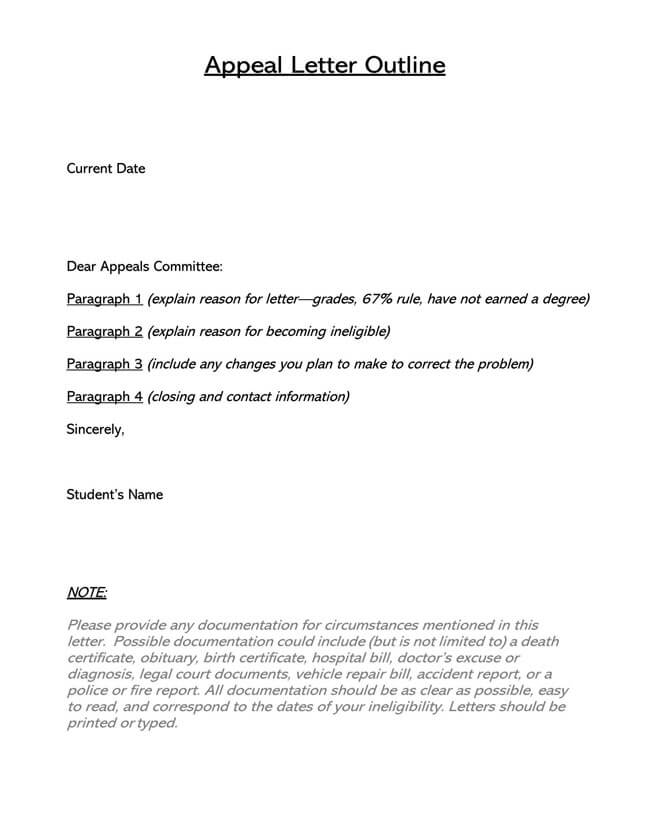
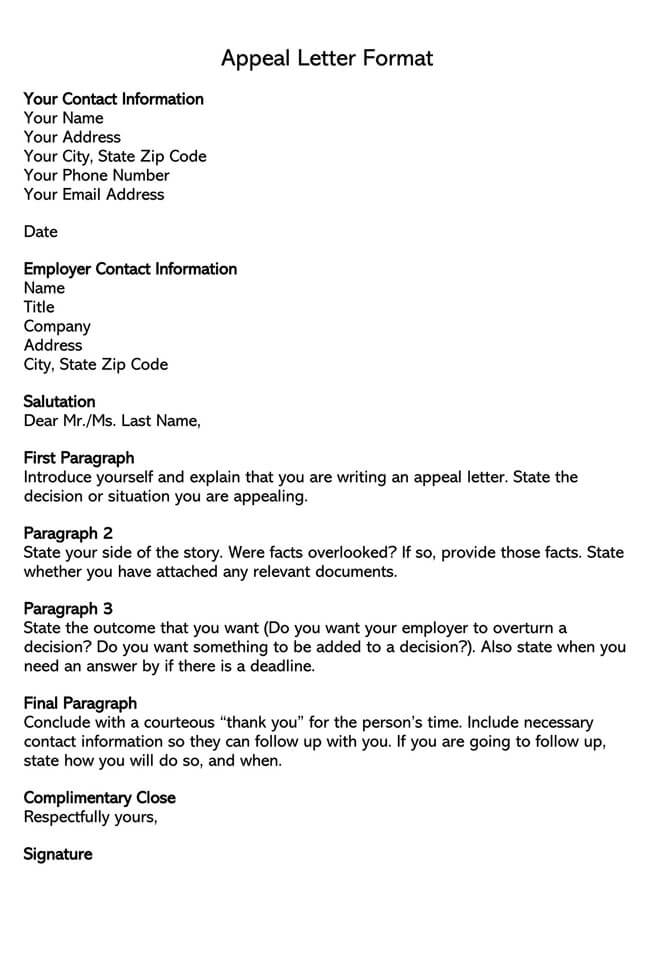
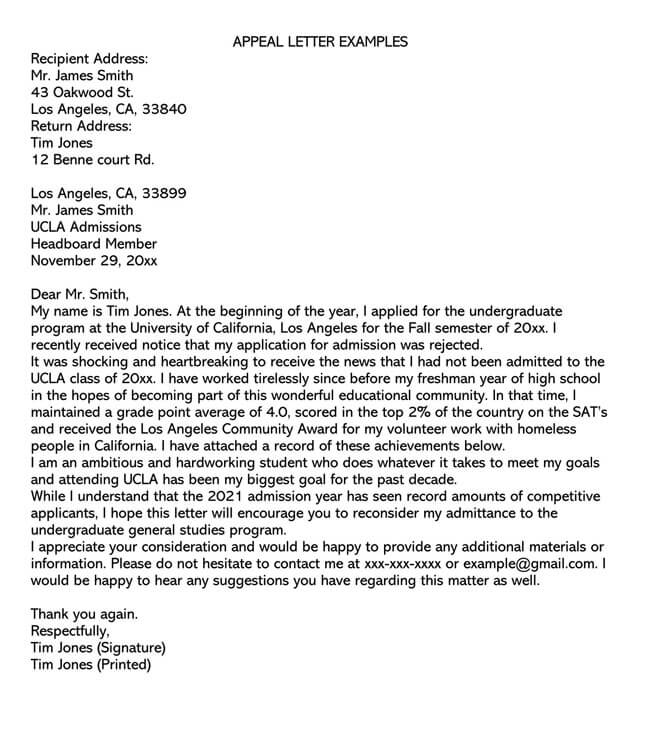
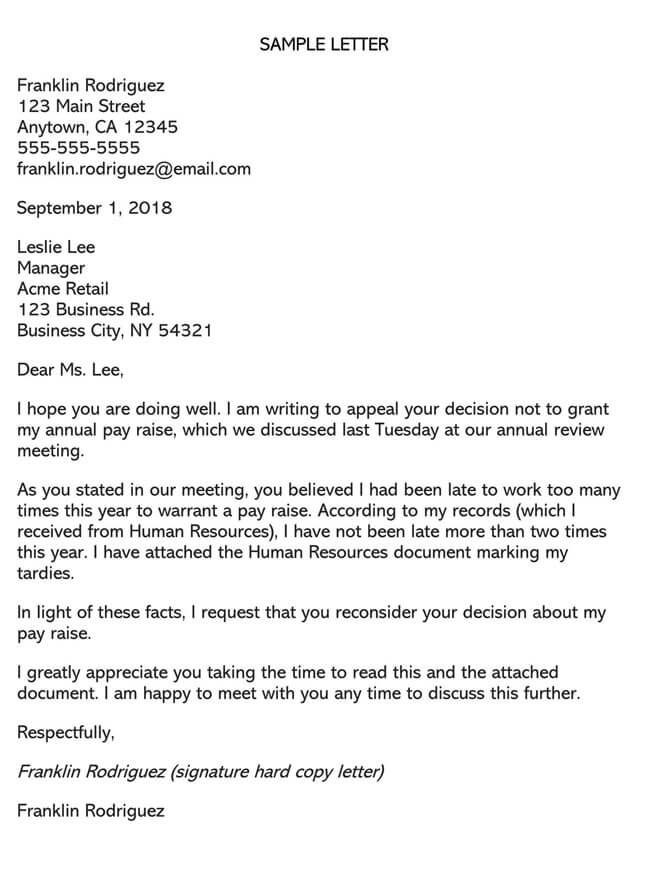
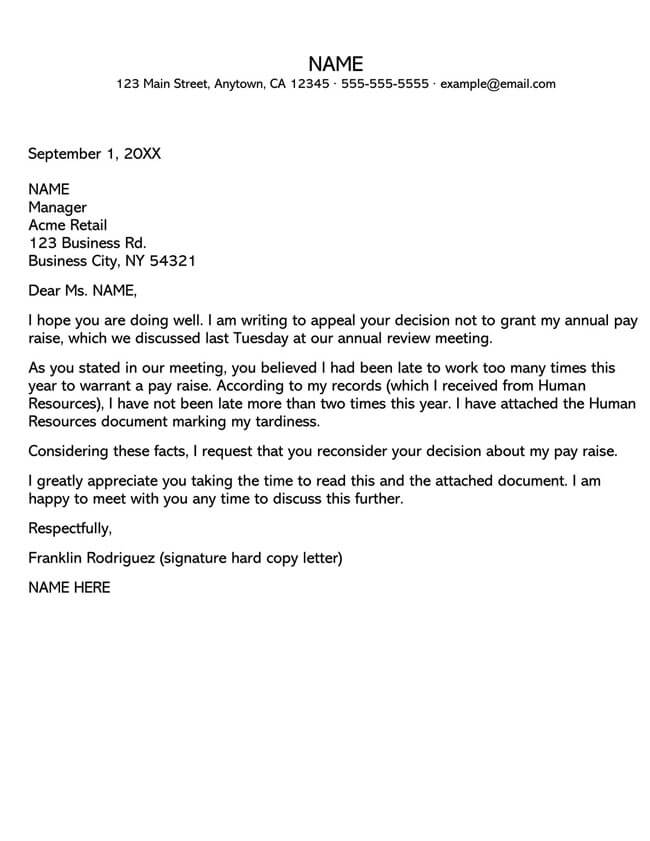
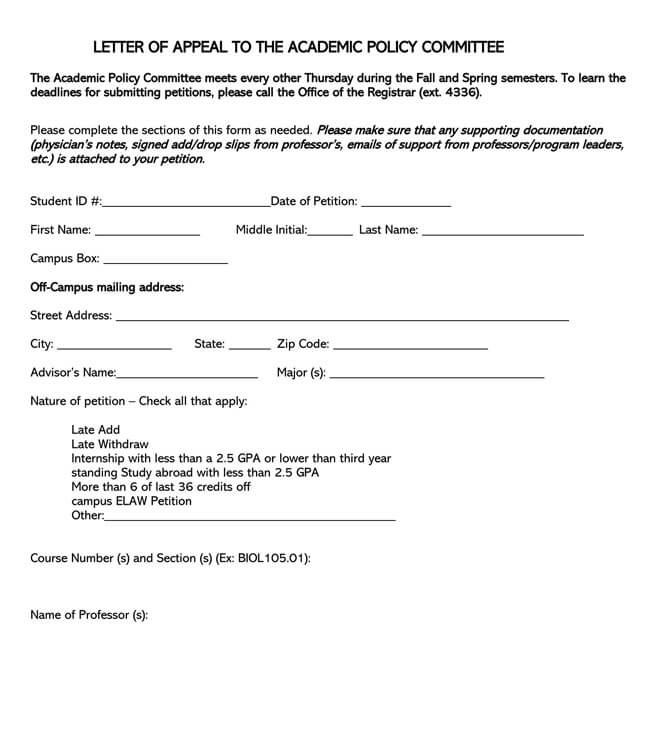
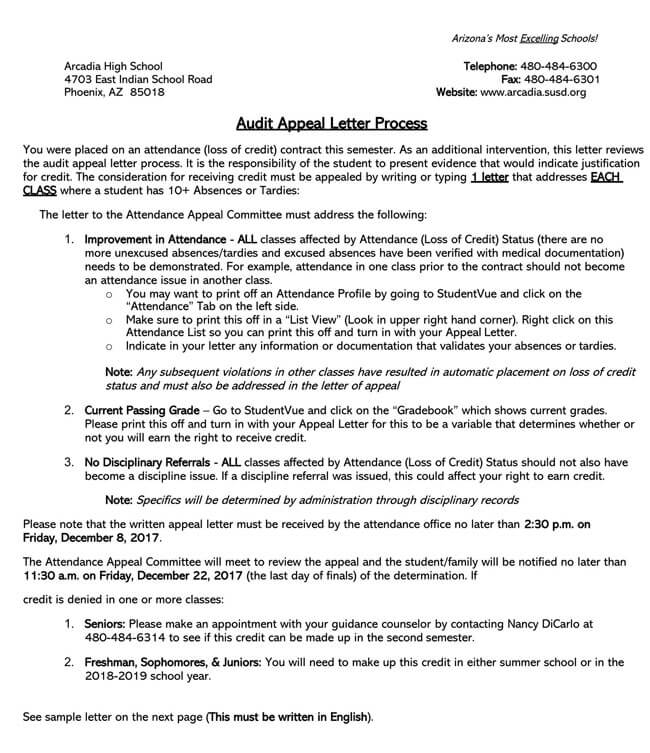
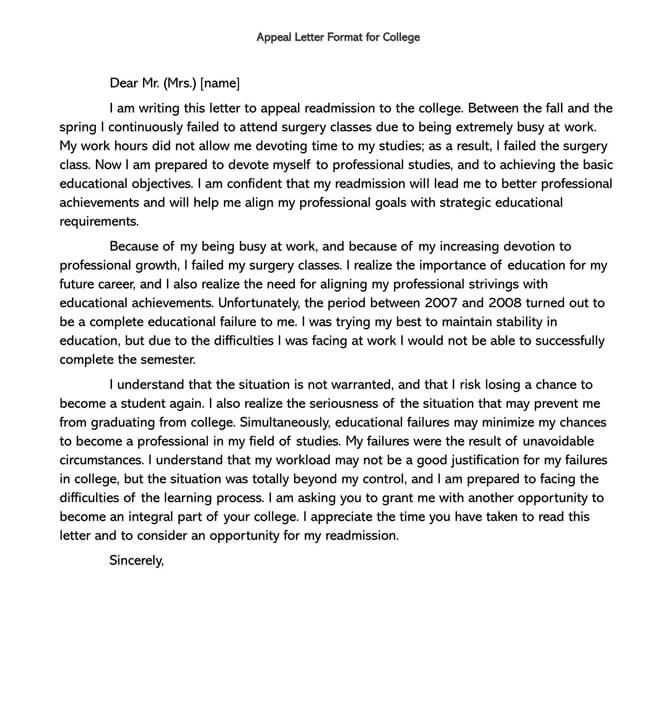
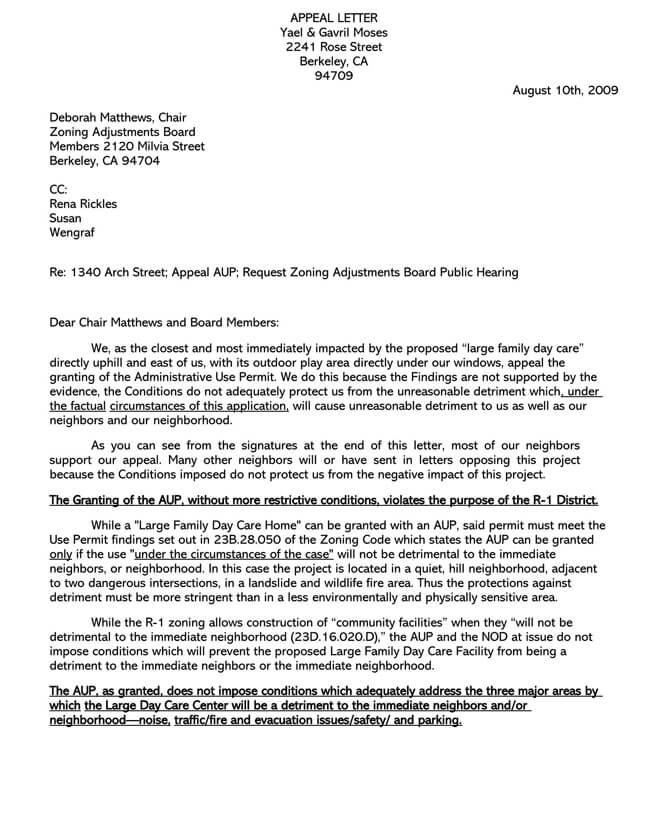
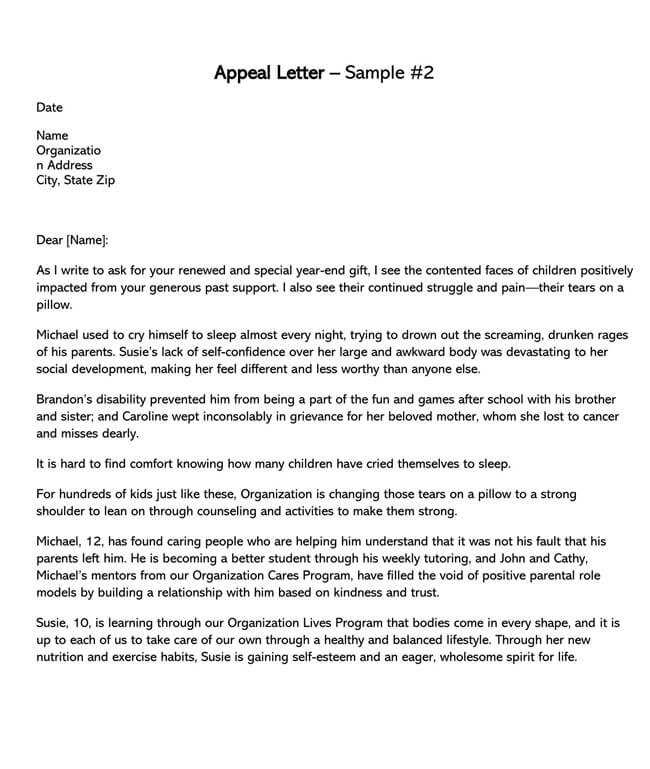
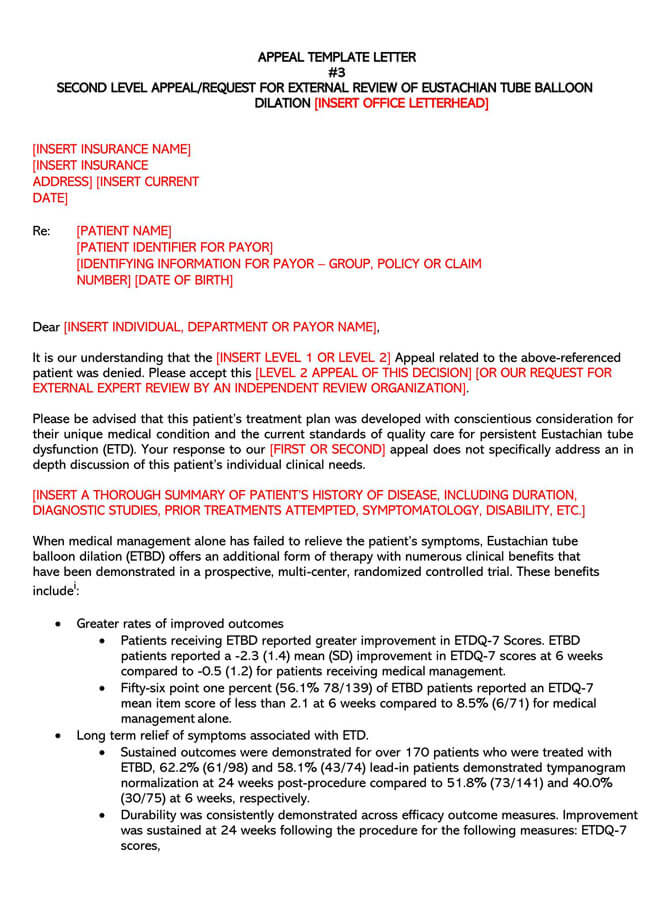
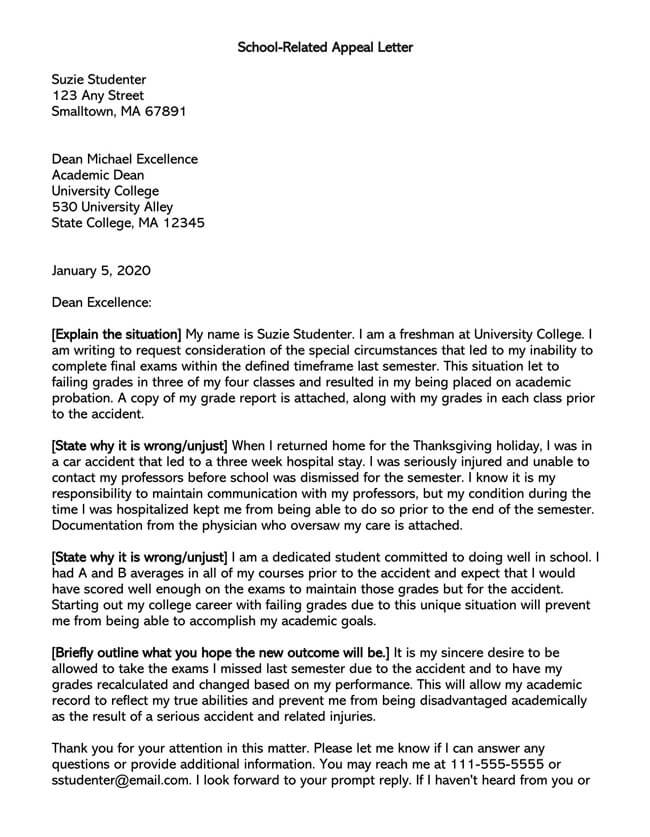
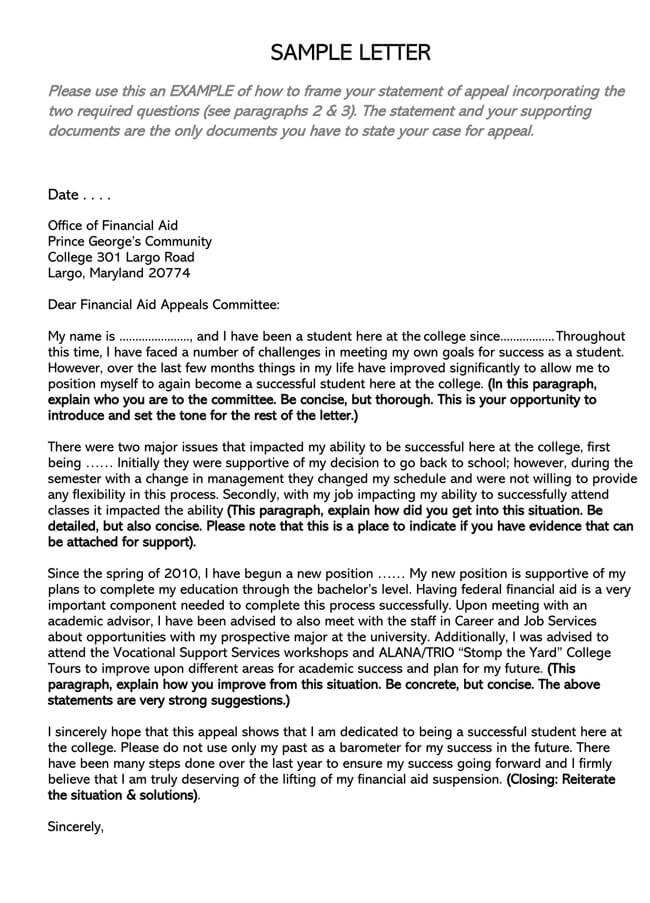
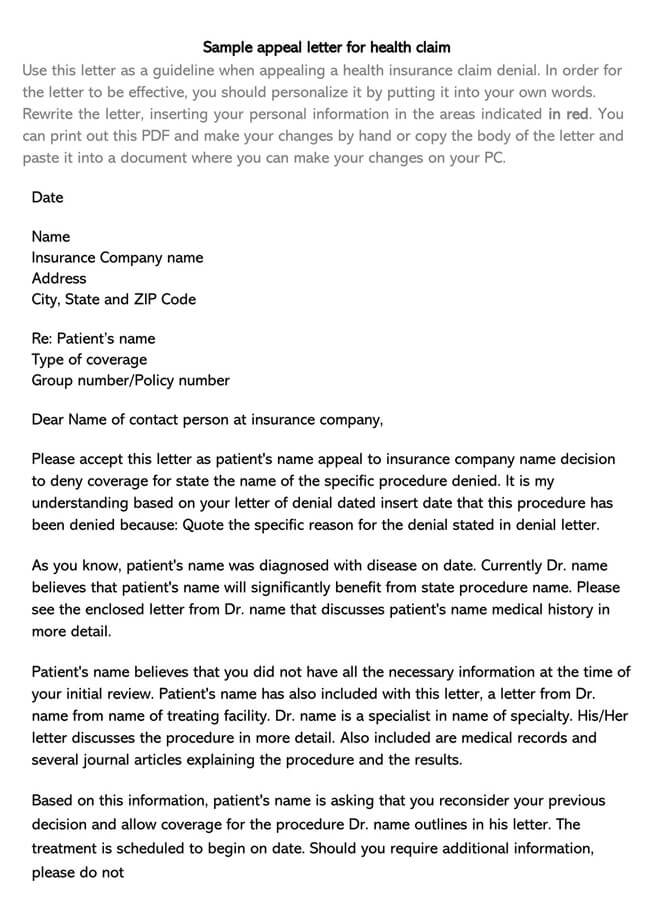
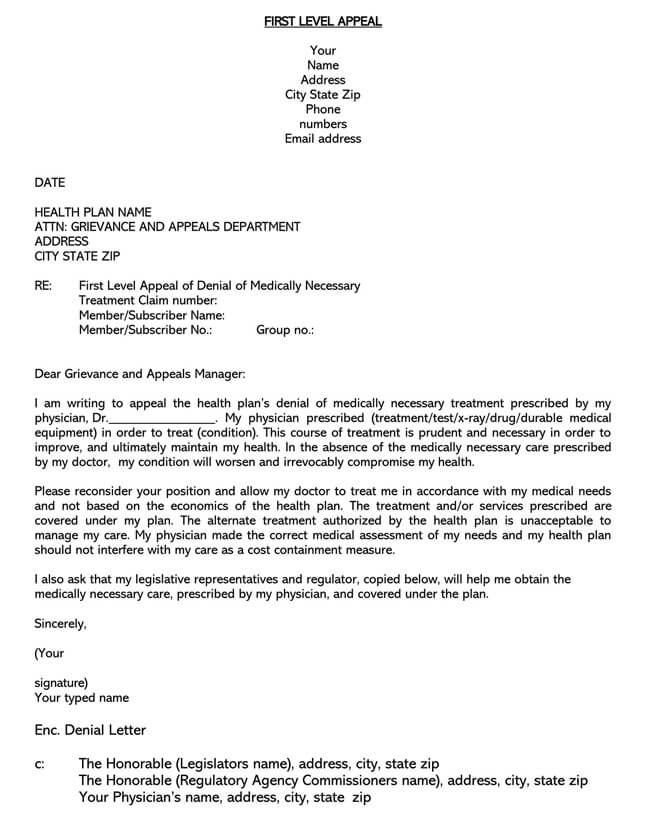
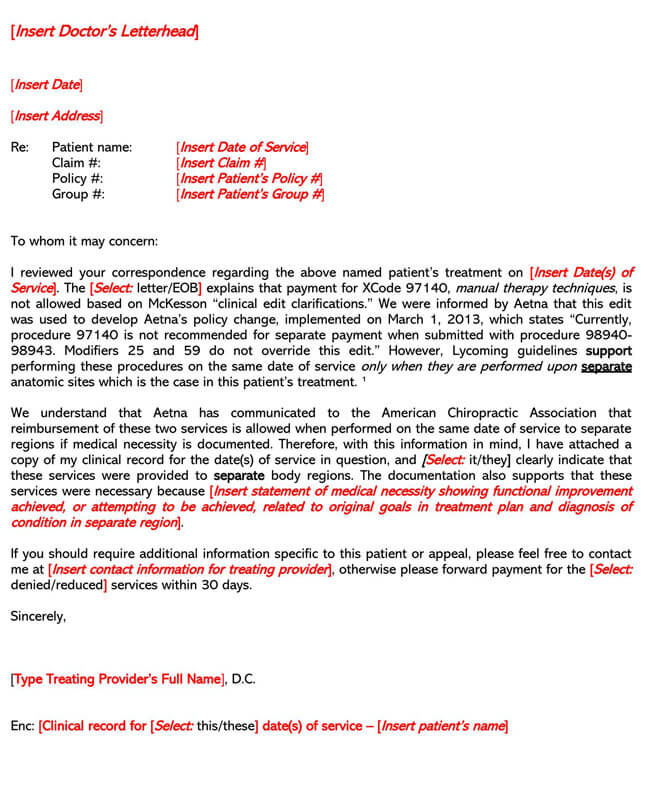
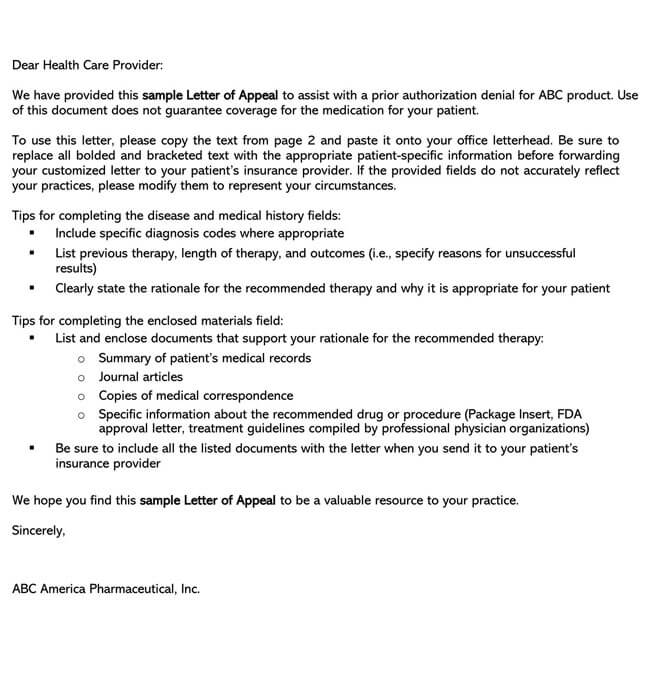
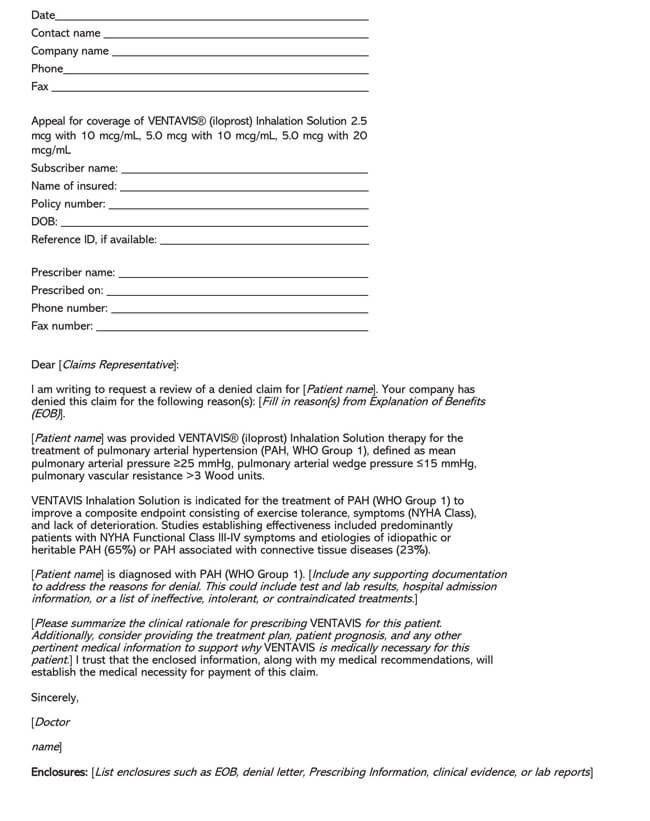
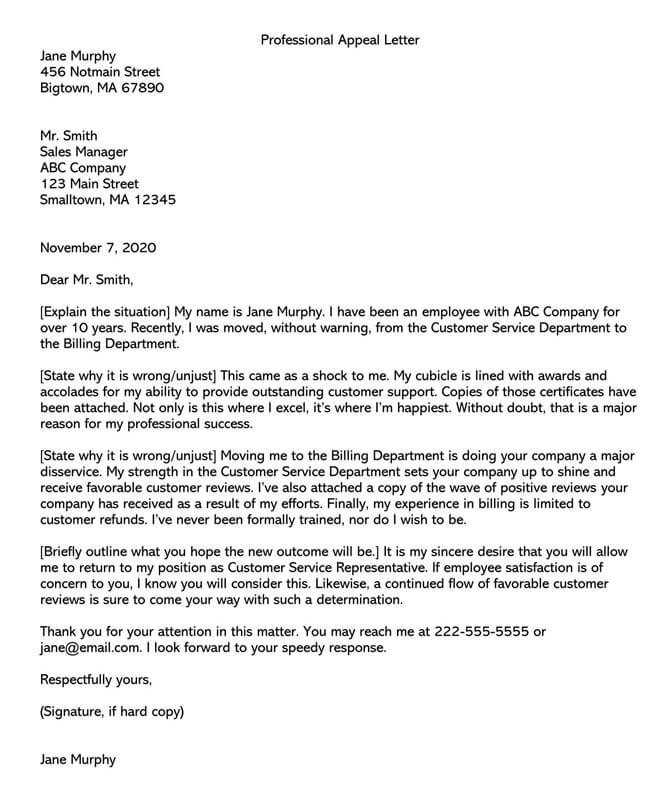
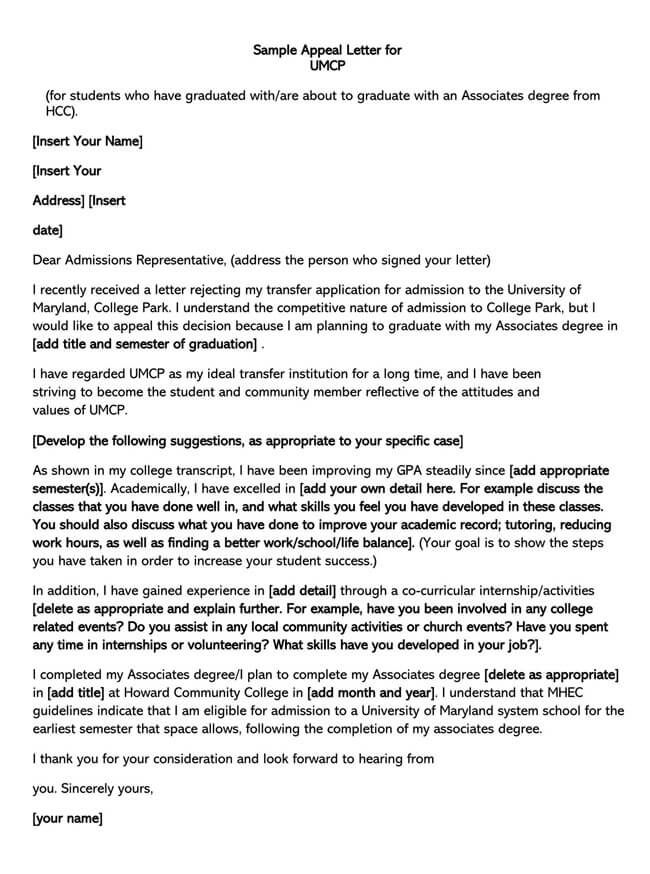
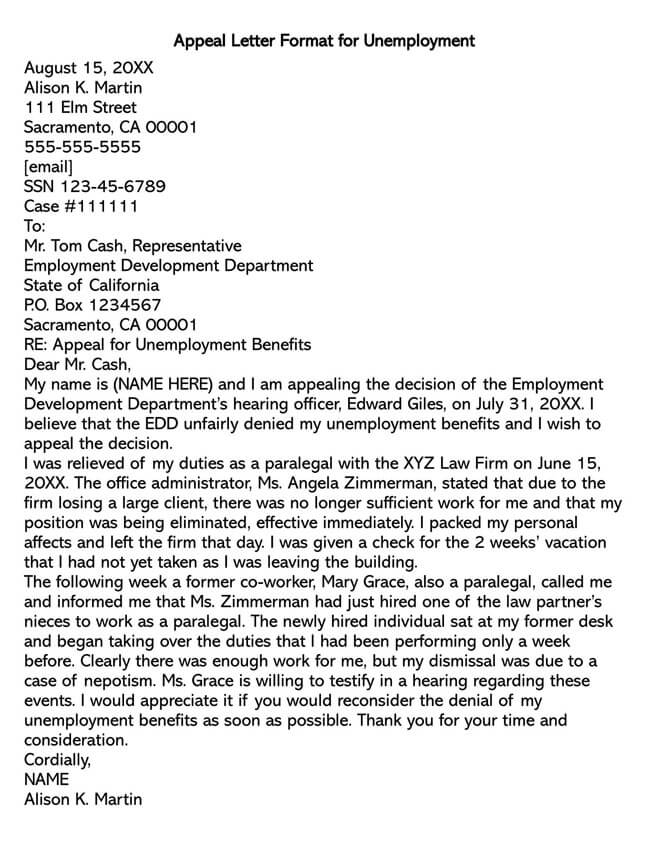
Situations Requiring an Appeal Letter
In a formal setting, a range of executive decisions are made that can impact individuals within an organization or institution. Consequently, these decisions may be either favorable or unfavorable, and potentially fair or unfair, to those affected. Writing a letter of appeal is the individual’s only acceptable course of action to reverse such decisions.
Here are the typical situations where it is required:
- Termination of appointment (being fired or laid off)
- Unjust pay cuts (having your wages reduced for reasons you do not agree with)
- Non-implementation of a deserved pay increase. (When you deserve a raise and you do not get it.)
- A deserved admission into a university is rejected (if you meet all the admission criteria, and are refused admission into the university).
Crafting a Professional Appeal Letter
If you believe you must remain objective and professional in your writing, here is an excellent way to do it that can help you accomplish your goal and resolve your grievances:
Verify the process first
In the process of writing it, the first thing you need to do is review the organization’s overall appeal process. Every organization has a pre-existing framework for handling such matters, and as such, there are recommended procedures that you need to follow in such cases. This information should be included in the student handbook in the case of a university and the employee handbook in the case of an organization.
If the information you seek is not in the handbook, you may seek advice from your academic advisor or guidance counselor if you are dealing with a university. If the grievance is work-related, you may need to communicate with human resources or the operations manager of the organization. Once done, you need to follow the process as it is laid out to get the best possible response.
Find the proper email address
In every organization or institution, there are individuals to whom matters such as student and employee grievances are addressed. As such, these individuals should be contacted with your letter. If you are sending it via e-mail, be sure to find out the correct email address of the office concerned with such affairs.
Explain the situation
As you write your letter, you must focus on clearly explaining the situation that occurred. Focus entirely on the facts of the event or decision you choose to appeal. Be sure to write a concise body that goes straight to the point. If you have done something wrong, acknowledge it and indicate that you have learned from your mistake, then continue with the facts surrounding the events that led up to the decision
Describe why it is unjust
Clearly illustrate why the decision seems wrong or unjust from your perspective. The goal is to make a logical and persuasive argument that focuses on making the decision-maker reconsider their decision. If there is an organizational or institutional policy that supports your claim, be sure to cite it. You must also mention the negative impact the decision has on you, the organization, and/or others. You may also describe the likely outcome of carrying out such a decision. Be sure to indicate and attach any supporting evidence or documentation. Once this is done, begin your conclusion with your desired outcome.
Request for a specific action
After providing a clear and concise explanation of the situation and clearly illustrating why it should be corrected, the next step is to describe what you are requesting for the recipient of your letter to do. Specifically, state your required outcome to avoid any confusion as to your request.
Carefully Proofread your letter
Ensure that your letter is free from all typographical errors and communicates your case effectively. Pay attention to its tone and ensure that it is persuasive and has a concise outline of all the facts of the case. Ensure that your call to action is respectful yet firm enough to persuade the recipient of the letter to lean toward your desired outcome.
Get a second opinion
To have somebody else review it first is always a good thing before submitting it. You may ask a trusted friend or colleague to review your letter before handing it in. Your second opinion will help ensure your grammatical accuracy and objectivity. Also, your objectivity is what will prevent you from sending an emotional letter of appeal instead of a logical one. A second opinion is the best way to ensure that, from another perspective, your letter is objective.
Follow up
If you have sent it out for a while without any feedback from your supervisor or university admissions team, you can send out a casual and friendly follow-up by email or phone.
Template for an Appeal Letter
[Your Name]
[Your Address]
[City, State, Zip Code]
[Email Address]
[Phone Number]
[Date]
[Recipient’s Name]
[Recipient’s Position/Title]
[Organization’s Name]
[Organization’s Address]
[City, State, Zip Code]
Subject: Appeal Regarding [Brief Description of the Matter]
Dear [Recipient’s Name],
I hope this letter finds you well. My name is [Your Name], and I am writing to respectfully appeal [describe the decision or situation, e.g., the denial of a claim, a disciplinary action, an academic decision, etc.] that was recently made regarding my [specify the context, e.g., insurance claim, employment, academic status, etc.]. I am seeking a reconsideration of this decision based on new evidence, extenuating circumstances, or a misunderstanding that I believe may have influenced the initial outcome.
On [Date of Decision], I was informed that [briefly describe the decision or action taken]. This decision has significantly impacted me by [describe the impact, e.g., financially, academically, professionally, etc.], and I believe that a review of the following points and evidence will illustrate why a reconsideration is warranted.
New Evidence: [Describe any new evidence that was not previously considered, including dates and details that support your appeal.]
Extenuating Circumstances: [Detail any extenuating circumstances that may have affected your situation or the initial decision, including relevant dates and specifics.]
Misunderstanding or Error: [Explain any misunderstandings or errors that occurred, providing evidence or clarification to support your claim.]
In light of the above points, I respectfully request that [specific action or decision you are seeking, e.g., the reversal of the decision, a reevaluation of your case, etc.]. I believe that this action is justified because [provide a brief rationale for your request].
Enclosed with this letter, you will find [list the documents, e.g., medical records, letters of support, academic records, etc.], which I believe support my case and substantiate the points raised in this appeal.
I sincerely hope that you will consider my appeal favorably and reassess the initial decision in light of the evidence and circumstances presented. I am confident that a review of my case will underscore the merit of my appeal. I am available at your convenience for any further information or discussion and can be reached at [Your Phone Number] or [Your Email Address]. Thank you very much for your time and consideration of my appeal.
Sincerely,
[Your Name]
[Enclosures: List of Documents]
Professional Appeal Letter Samples
Writing a good letter begins with getting a good idea of what it looks like. Here are a couple of sample letters, depending on the circumstances of the writer:
Student-related Appeal Letter Sample
Dear Appeal Committee,
Subject: Appeal Regarding the Denial of My Scholarship Application
I am reaching out to formally request a reconsideration of the recent decision made by the Scholarship Committee at XYZ University, which resulted in the denial of my application for the 20XX Academic Excellence Scholarship, as communicated to me on February 25, 20XX. After reviewing the reasons provided for this decision, I am convinced that certain aspects of my application were not fully considered, particularly my recent academic achievements and community service engagements. Therefore, I am seeking a re-evaluation of my scholarship application in light of this additional information.
In the decision letter, it was noted that my academic performance did not meet the high standards typically expected of scholarship recipients. However, I believe that my most recent grades, which were submitted subsequent to my initial application, significantly bolster my case. These grades reflect a marked improvement in my academic standing, aligning with the scholarship’s criteria for academic excellence.
Enclosed with this letter, you will find updated transcripts and letters of recommendation that were not available at the time of my initial application. These documents not only attest to my academic improvements but also highlight my leadership roles in community service projects, which I believe are in line with the values XYZ University seeks to promote through this scholarship.
I respectfully request that the Scholarship Committee reconsider my application with this new information in mind. I am hopeful for a positive outcome that would enable me to continue my studies at XYZ University without the financial burden that might otherwise hinder my academic and professional pursuits.
I am fully prepared to provide any additional information or clarification that may be required as part of this appeal process. I am also willing to meet in person or via a virtual meeting to discuss my application further. My commitment to my education and to making a positive impact within the XYZ University community remains steadfast.
Thank you very much for your time and consideration of my appeal. I am looking forward to the opportunity to present my case in more detail and am hopeful for a reconsideration of the decision regarding my scholarship application. Please do not hesitate to contact me at (555) 123-4567 or via email at john.doe@email.com should you require any further information or wish to schedule a meeting.
Sincerely,
John Doe
[Attachments: Updated Transcript, Letters of Recommendation]
Employee Appeal Letter Sample
Dear Appeals Committee,
Subject: Appeal Against Recent Job Termination
I am writing to formally appeal the decision regarding my termination from the position of Senior Software Developer at Innovative Solutions Corp., effective as of February 28, 20XX. This decision was communicated to me via a meeting with my direct supervisor, Mr. John Harris, and a follow-up letter citing “repeated failure to meet project deadlines” as the primary reason for termination. I believe that this decision does not fully account for the extenuating circumstances that impacted my performance, nor does it reflect my overall contribution to the company. Therefore, I respectfully request a reconsideration of my termination.
During the past six months, I have faced several significant personal challenges, including a family health crisis that demanded considerable attention and time, inevitably affecting my work. Despite these difficulties, I made every effort to communicate my situation to my supervisor and to manage my workload effectively, including working extra hours and on weekends. Unfortunately, these efforts were not sufficient to prevent delays in two key projects.
It is important to highlight that prior to these recent challenges, my performance reviews have consistently been positive, with commendations for my technical skills, problem-solving abilities, and contributions to the team’s success. Over my four-year tenure with Innovative Solutions Corp., I have played a pivotal role in the development and launch of three major software products, directly contributing to their commercial success.
I kindly request that the Appeals Committee consider the following in their review:
- A comprehensive evaluation of my performance history and contributions to the company.
- Consideration of the extenuating personal circumstances that temporarily impacted my ability to meet project deadlines.
- A review of the support (or lack thereof) provided to me during this challenging period, in line with the company’s policies on employee well-being and work-life balance.
I am fully committed to regaining my previous level of performance and exceeding it. I propose the following as potential steps forward:
- A temporary adjustment of my workload or deadlines to accommodate my current personal situation, with a clear plan for gradually returning to full capacity.
- Engagement in additional training or mentoring sessions, if deemed necessary, to address any gaps in my performance.
- Regular check-ins with my supervisor to monitor progress and adjust strategies as needed.
I deeply value my time with Innovative Solutions Corp. and am eager to continue contributing to our projects and goals. I believe that, with mutual understanding and support, we can find a way forward that benefits both the company and my professional development.
Thank you for considering my appeal. I am willing to provide any further information required and am available for a meeting at your earliest convenience. Please feel free to contact me at (555) 987-6543 or via email at ava.chen@email.com.
Sincerely,
Ava Chen
Analysis
Both appeal letters effectively convey the petitioner’s request for reconsideration while providing pertinent details and supporting evidence to strengthen their case. In the student-related appeal, the petitioner clearly outlines the grounds for appeal, emphasizing recent academic achievements and community service engagements that were not fully considered in the initial decision. By including updated transcripts and letters of recommendation, the petitioner substantiates their claims and demonstrates their commitment to meeting the scholarship’s criteria. The tone remains respectful and professional throughout, and the petitioner expresses willingness to provide further information if needed, fostering openness and cooperation in the appeals process.
Similarly, the employee appeal letter presents a compelling case for reconsideration of the termination decision. The petitioner candidly addresses the challenges that affected their performance, providing context for the delays in project deadlines. By highlighting their positive performance history and contributions to the company prior to the challenging period, the petitioner underscores their value as an employee and their commitment to the company’s success. Proposed steps forward demonstrate proactive measures to address any performance concerns and emphasize the petitioner’s dedication to regaining their previous level of performance. Like the student-related appeal, this letter maintains a professional tone and offers availability for further discussion or clarification, showing a willingness to engage constructively in the appeals process. Overall, both letters effectively advocate for reconsideration of the respective decisions while maintaining clarity, credibility, and professionalism.
What Not to Include In an Appeal Letter
It is a factual and concise way of making your grievances known without any emotional context. Appealing to the recipient’s emotions offers no guarantee that they will reconsider their decision. Instead, write a clear-minded concise outline of the facts and include supporting evidence. Refrain from including any exaggerations or mistruths. The best way is to think like a lawyer, state the facts of the case, and avoid any hints of anger, strong emotions, or judgment. Strive to be persuasive, not aggressive.
Professional Tips to Consider
When writing it, there are certain elements you need to include and others you need to avoid making the right impression on your recipient. Therefore, we have put together a few professional tips for you to consider as you write your letter of appeal:
Use a business letter format
It is a formal document and should be formatted as such. The widely accepted format for all formal documents is the business letter format. Use single-spaced lines with an additional space between each paragraph, after the salutation, and before the closing. Justify the body to the left margin.
Here is the business letter format:
- The date
- Sender name, title, and contact information
- Recipient Name, title, and contact information
- Salutations
- Concise paragraphs
- Formal closing and signature
Use a polite, formal tone
It is a formal document, and the tone of the written document should reflect the formality. You must keep your emotions out of the tone as you write, keeping every word formal.
Collect concrete evidence
Making an ambiguous explanation as to why you are a great employee or would make a great student stands very little chance of making anyone reconsider their professional decision. However, if your argument contains hard evidence such as academic records or sales records, it makes a more persuasive argument.
If, for instance, you recently applied for admission to a university and, despite your excellent academic records, you were rejected, you need to provide details of your academic achievement as well as extra-curricular achievements, awards, and other documents to prove your case.
Admit mistakes
Although the situation that warrants you to write this letter may be beyond your control, in some cases, it may also be due to some mistakes you may have made. If you have made any mistake that you feel could be the cause of our rejection, you must admit those mistakes and commit to rectifying them
Be prepared for follow-up questions
Your requests are likely not to be accepted immediately after you send this letter. In most cases, you will need to go through back-and-forth correspondence before reaching an agreement. You will be asked some follow-up questions to further establish your case.
Here are some common follow-up questions:
- Why do you think your admission was rejected?
- Do you think you need to improve on any of your skills or attain extra qualifications to better qualify for your request?
Stick to the facts
Facts that will help support your case should be included. If certain policies have been ignored or violated, you need to state those policies. Including relevant documentation to help your case is a must. Be sure to avoid emotional pleas and stick to facts and solid numbers.
Frequently Asked Questions
It is a formal document, stating facts about a situation you feel is unjust. As such, it should be concise, yet detailed enough to include all the facts of the case. However, avoid emotional pleas and irrelevant information.
Various organizations have various procedures and personnel to take care of student and employee grievances. It is only as strong as the case that it is made to appeal. However, a badly written letter weakens the case for which it is written. A good letter is the best chance to get an unfavorable decision reversed.
Conclusion
A letter of appeal is important if you feel like you have been wrongly denied an admission offer or a salary increase, or if you feel like you have been wrongly laid off from your company. It is important to note that such letters rely on facts and indisputable figures to persuade the concerned party to reverse their decision. However, how the letter is composed can either strengthen or weaken your case. Download our well-researched and well-written templates to ensure that you write a spot-on letter of appeal with the greatest chance of success.




